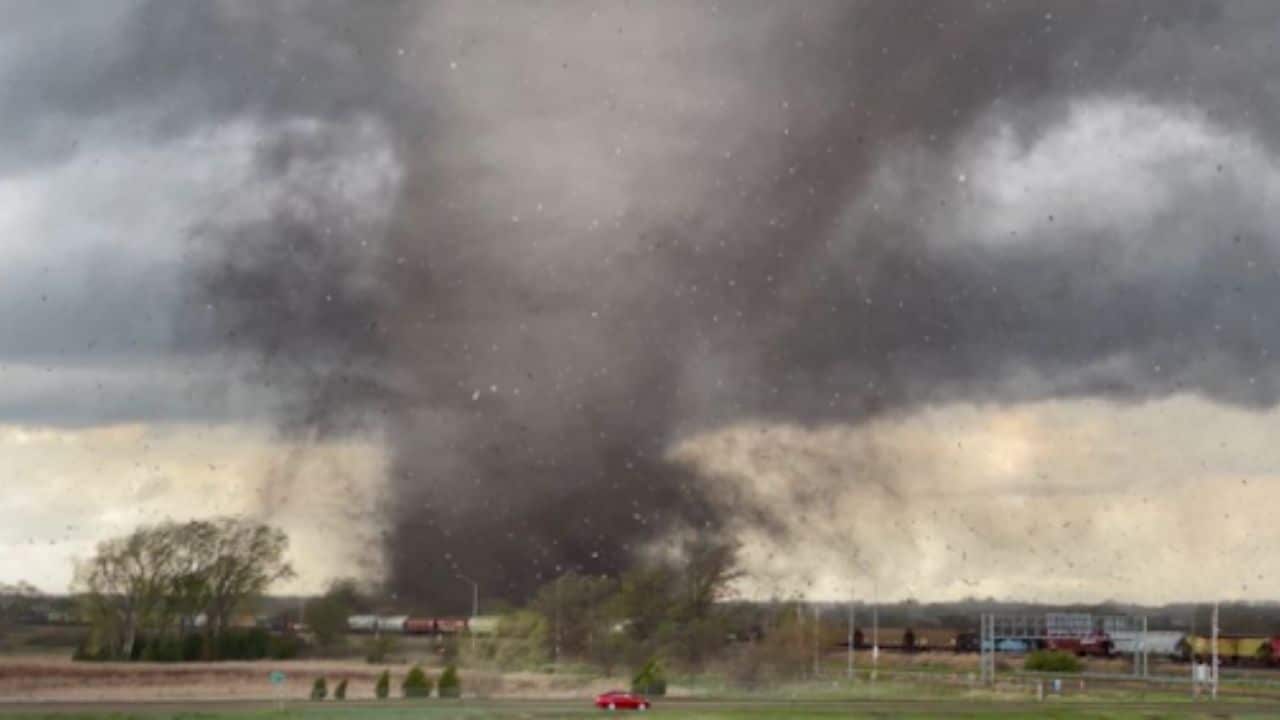A lesser-known respiratory virus has caused an increase in cases, according to NSW Health.
Human metapneumovirus (HMPV) has been on the medical radar since the early 2000s, and according to NSW authorities, the number of weekly cases increased from 648 at the start of the month to 1,168 in the week ending September 17.
According to NSW Health, HMPV is often more prevalent in late winter and early spring.
This is all you need to know about the virus and why there are so many instances right now.
According to NSW Health, HMPV is often more prevalent in late winter and early spring.
What Are the Signs and Symptoms?
According to University of Sydney senior researcher and virologist John-Sebastian Eden, the symptoms are similar to a normal cold.
Its symptoms resemble those of COVID-19, the flu, and respiratory syncytial virus (RSV), which is genetically related to HMPV.
“You probably wouldn’t be a differentiator from COVID or flu for most healthy folks… or simply having a cold or a severe cough,” he explained.
According to Dr. Eden, people are unlikely to be aware of the virus until they test positive for it.
“It’s definitely one of the viruses that you probably don’t know about until you just happen to have that test where you see a report that says, you had HMPV, you might have thought it was flu or COVID.” Additionally, you can also read about- Long COVID: How COVID-19 Can Affect the Immune System Long Term
What Should You Do if You Acquire It?
A PCR (polymerase chain reaction) test is used to detect the virus; however, not all PCRs will test specifically for HMPV.
NSW Health advice is to:
- If you have a cold or the flu, stay at home.
- Wash or sanitise your hands often
- In crowded, indoor areas, wear a mask.
- Gather outside or in spacious, well-ventilated rooms with open doors and windows.
- If you have cold or flu symptoms, avoid visiting those who are at a higher risk of serious disease.
Professor William Rawlinson, a virologist at the University of New South Wales, stated that the medical community has a solid consensus that masks are helpful for stopping the spread of respiratory infection, but that a combination of treatments is required.
Dr. Eden stated that there are no anti-viral medications or vaccines available to treat HMPV.
“These viruses have no specific drugs.” So it’s just a matter of controlling the symptoms until the immune system kicks in and kills the virus,” he explained.
“If you’re sick, stay at home, wash your hands, look after your kids if they’ve got some infection or something like that, and just staying away from other people if you’ve got a respiratory infection.”
Sicker, Older and Younger People Most at Risk
According to NSW Health, although HMPV is often a mild cold for most people, the virus can occasionally escalate and become more serious, with small children, elderly adults, and those with weaker immune systems being the most vulnerable.
There is a danger of complication for children under the age of five, according to Dr. Eden.
“In young kids, it can lead to some kind of chronic inflammatory diseases after infection.”
HMPV can also cause severe disease in the elderly, according to him.
“We’ve had noted outbreaks in previous years at nursing homes … so it can really cover the whole spectrum,” said Dr. Eden.
“But for the vast majority of people, it’s something that you might battle for a week and then get over.”
According to Professor Rawlinson, viruses such as HMPV can cause other respiratory illnesses such as pneumonia, but this is extremely unusual.
“Some of those [cases] can then progress and in people with particularly compromised immunity, they can then progress in some cases to die, although that’s uncommon with HMPV.”
According to health officials, the test results may have resulted in an underestimating of the number of illnesses in the community.
Ryan Park, Minister of Health, reiterated the department’s position.
“People don’t need to be alarmed but they do need to be informed and what that means is making sure that they’re aware that this virus is around and that if they’re starting to show the symptoms then do what they would normally do for a cold and flu.”
Why Are There So Many More Cases?
While HMPV is more common in the late winter and early spring, NSW Chief Health Officer Kerry Chant noted that during the peak of the COVID pandemic, people took precautions that reduced the spread of several viruses.
“We are seeing a resurgence of respiratory viruses.” “We basically have very little circulation of respiratory viruses for the first two years of the pandemic because of all those COVID social distancing measures,” Dr Chant explained.
“We’ve now seen an uptick in as we’ve seen flu, RSV and HMPV is yet another virus.”
According to Professor Rawlinson, experts are still unsure why the virus is more prevalent at this time of year.
“It’s probably that people are coming out and mixing more, it’s probably spread rather than the virus itself,” he stated.
“However, it’s an excellent question. It’s one of the things we need to look at.”




































